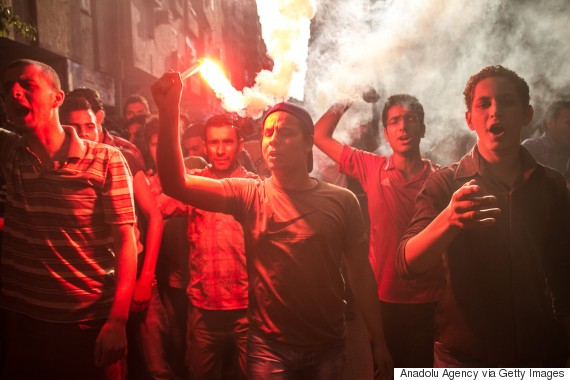Is Egyptian Youth Scared Of Another Revolution?
Youth protest against the Egyptian regime

NEW DELHI: Giulio Regeni, an Italian doctoral candidate at Cambridge University conducting research on street vendors in Cairo was kidnapped, tortured, and murdered? Who kidnapped him, who tortured him, who murdered him? How many other nameless Egyptian student social activists and young and older scholars have been kidnapped tortured or possibly murdered too --the military junta under General Sisi must be held accountable.
Does this scare the Egyptian youth of today?
Well, the youth movements in Egypt played a pivotal role in mobilizing the uprising against the Egyptian ruler Hosni Mubarak in 2011, ultimately leading to his downfall. In a research carried out by the writer, most of the respondents did believe that the Arab Youth has been sidelined from the protests.
Others believed that the youth was sidelined from any role in leading the transition, but still at the forefront of protesting. Others stated that the youth have not been sidelined in other countries but protesting has its own consequences. While others stated that the youth have not been sidelined from the protests. They were at the center of the protests, the locomotive of the uprisings themselves, but they were sidelined from most of the political processes that ensued. The real power in the country never took the young people seriously and if they were taken seriously they taken into prison or taken somewhere and beaten to death. While others stated that the youth have participated heavily in the protests and were at the forefront of protests and media. While others answered in affirmative because young demonstrators were arrested as a result of the issuance of laws criminalizing demonstrations.
Few stated that in Egypt, protests don’t exist and if there is any, youth as individuals –not a part of group like Muslim brotherhood- don’t have the chance to participate. At the same time, the notion still exists that it is impossible to sideline millions of people who came out and revolted, especially from the rural areas. Though, they might not be mobilized into masses as before, but they are still fed up by the system.
Few stated that it is common knowledge that not all youth know how to participate in protests have the same intentions or level of awareness. Some youth participants are willingly choosing to destroy their future for their present. Few would like to believe that Arab youth are trying to find other tools (in addition to protesting). They’re also being hardly cracked down upon by security forces. Many of them are in jail or tired and hopeless.
Others are quite optimistic, stating that nobody can ever sideline the youth. But, due to the post-revolt same government measures and suppressive legislation, they try to sideline everyone. Most of the respondents believed that it is the ‘power struggle’ in Egypt which has sidelined the youth from mobilizing and sharing their opinions and forming demonstrations. The youth of Egypt is demanding justice and most of them have been detained, arrested, tortured or killed which makes it even more difficult for others to participate as the fear of losing one’s life is very predominant. Few respondents have also blamed the youth for being sidelined because they chose to be sidelined. They did not have the needed organizational skills and leadership vision which was essential to take Egypt out of the morass of the crisis and hence, the youth leaders lacked experience in governance. In Egypt, the youth, hence are seen as children who do not know what is good or bad for them, thereby giving more power to the regime. Few believed that the youth would be back again, someday, as the conditions right now are quite critical and pose an impediment to the demonstrations.
Scared or not scared, the frustrations of the Egyptian youth and piling up and only time will reveal if they have matured enough to have a thought leadership in their actions so that Arab Spring does not fail again in their country.
(The writer is a doctoral student at JNU, New Delhi)



